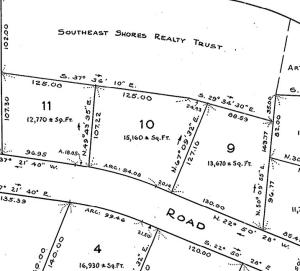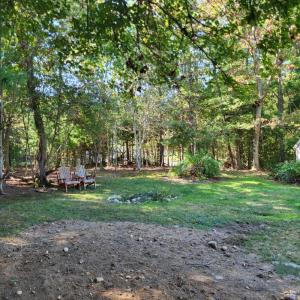Curbside pick-up, transfer station in the works
Story Location
United States
Wareham residents can look forward to both townwide curbside pick-up and access to a transfer station — at some point.
The Board of Selectmen voted at their Tuesday night meeting to work towards offering both options to residents, which they believe will best meet the town’s needs.
Negotiations with curbside haulers are still in progress, as are negotiations with the Carver Marion Wareham waste district about the operation of the Rte. 28 transfer station in Rochester, but it’s unclear whether either option will be available to residents on January 2.
Town Administrator Derek Sullivan was granted the authority by the Selectmen to take the first step towards establishing the curbside and transfer station program by signing a contract with Covanta-SEMASS, the trash-to-energy facility in Rochester. The facility will accept the town’s refuse for a fee of between $77 and $85 a ton.
Selectman Patrick Tropeano said that the town is getting a “very reasonable” rate, and noted that disposal at the Bourne landfill is about twice as expensive.
The contract was approved unanimously by the Selectmen.
Sullivan is actively in discussions with a curbside hauler, and said that the town can’t establish a fee system for waste disposal until both the curbside and transfer station contracts are signed.
The curbside hauler told Sullivan that curbside pick-up might begin in January, but, as Sullivan noted, “It’s 2020 folks. What could go wrong, will go wrong.”
The waste district voted to close the transfer station at the end of this year when it seemed most likely that the district would almost entirely disband, remaining together only to cover ongoing liabilities related to insuring the Carver landfill and post-employment benefits for employees.
Now, Marion will be withdrawing from the district, leaving Carver and Wareham with control of the Rte. 28 transfer station and most of the district’s equipment.
At a meeting on October 1, the waste district committee discussed many logistical problems associated with continuing the operation of the transfer station. Sticker prices need to be set, stickers must be sold, the vote to close the station must be overturned, and employees to run the station need to be hired.
The committee also has concerns about the capacity of the Rte. 28 station, which has been the site of not-infrequent traffic jams on summer Saturdays.
With the Benson Brook transfer station in Marion closing to residents of Wareham and Carver, the Rte. 28 station could see a 40 percent increase in traffic and waste.
The transfer station only has three compactors currently, but could get a fourth. Each has to be emptied at least once a day.
Right now, since the facility is run by SEMASS, crews can skip the line when they go to empty the containers. When the district runs the transfer station, crews will have to wait in line -- turning a 20-minute round trip into one that could take up to two hours, depending on what the line is like.
Town Administrator Derek Sullivan said that the town has a fall-back plan if neither curbside pick-up or the Rte. 28 transfer station are operational in January: Some sort of mini transfer station on Municipal Maintenance property.
He made it clear that that would be a last resort, however, describing it as a “horror show.”
The selectmen acknowledged that the waste management problem has been looming on the horizon for years, and as Selectman Alan Slavin put it, officials are attempting to do “basically three years worth of work in ten minutes.”
For years, officials have known that the current contract between the waste district and Covanta-SEMASS that allows the three towns to dispose of their waste for free in exchange for allowing SEMASS to use the Carver landfill was coming to an end on December 31, 2020.
“I just don’t want to end up with [the residents] ending up having to fend for themselves on January 2,” Selectman Patrick Tropeano said. “That is unacceptable. We have to do whatever we have to do to make it work.”
The delay of Town Meeting could be both a blessing and a curse for officials as they work to find a solution.
There are two solid waste articles on the warrant: one to establish a system of fees, and one to raise the cap on the solid waste revolving fund.
Currently, the revolving fund for solid waste is capped at $500,000. The article would raise that limit to $2.5 million, and it could be later adjusted up if necessary. While $500,000 is not enough to fund a year of the town’s solid waste programs, officials say it should be enough to cover operations until the delayed meeting is held.
Currently, that fund has “a couple hundred thousand” dollars in it, Sullivan said.
The article establishing a fee system has not yet been finalized, as the town can’t set the fees until the actual cost of the transfer station and curbside pick-up is determined.
“There’s no way to design something like this and make all 22,000 permanent residents and the other 20,000 summer people happy about this,” Selectman Peter Teitelbaum said.
Later, Tropeano pointed out that the trash issue could make or break the group’s future on the board.
“If we tell them on January 2, ‘Fend for yourself,’ all of us, we might as well say goodbye, because we’re not going to be sitting on this board anymore. Because they will throw us out of here quicker than lightning, I’m telling you right now,” Tropeano said.
Selectman Jim Munise advised those who contract with private haulers for curbside pick-up to plan to continue that service into the new year.































